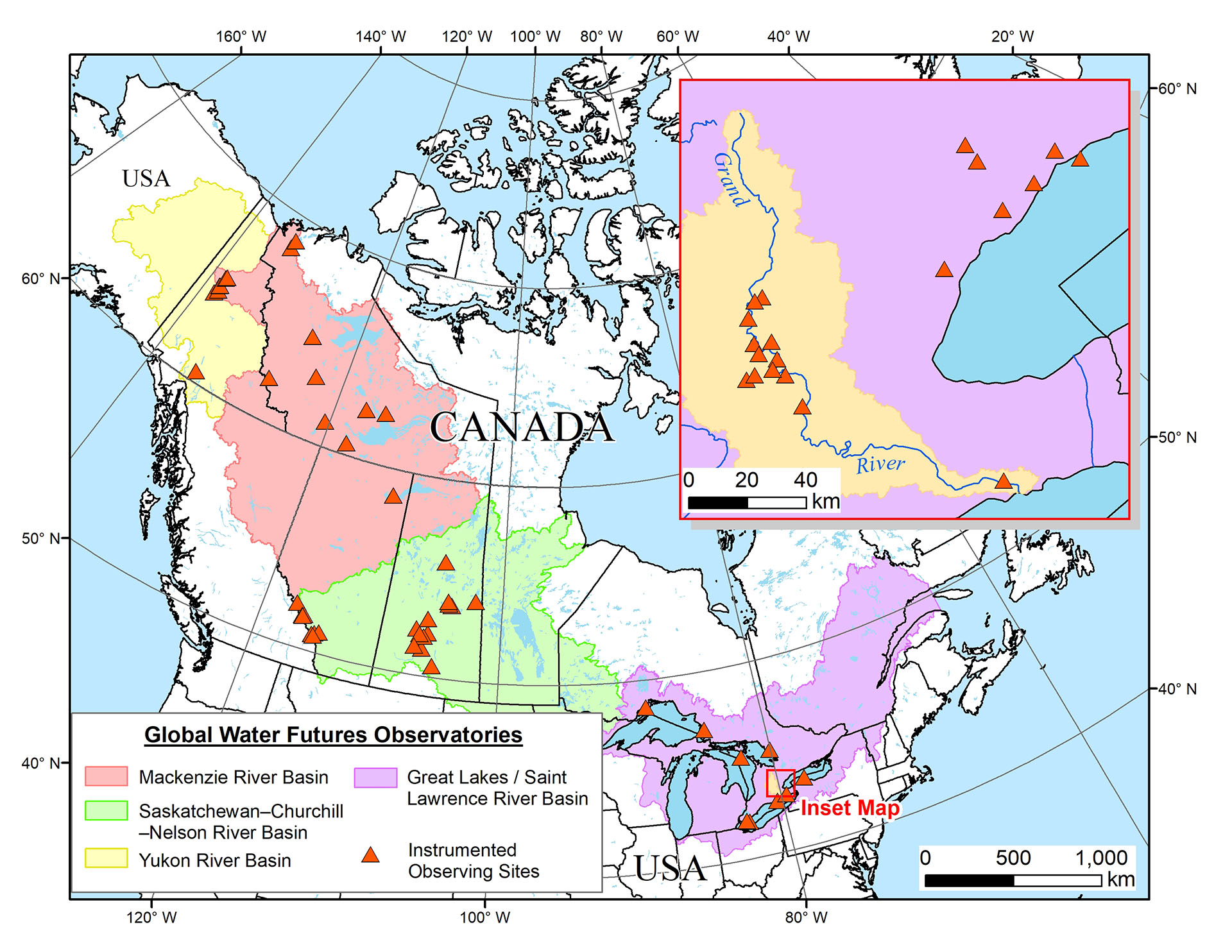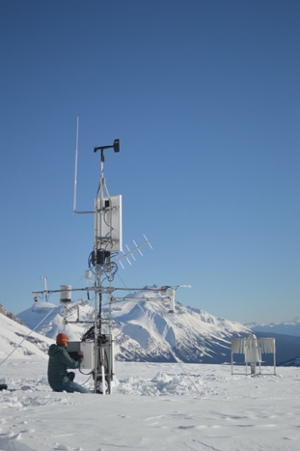Global Water Futures Observatories (GWFO) is Canada's premier national freshwater research facility, funded in part through the Canada Foundation for Innovation (CFI) and its Major Science Initiatives (MSI) from 2023–2029. GWFO supports critical water research to safeguard Canadian water resources in an era of rapid change. It operates 64 instrumented water observation sites in lakes, rivers, wetlands, glaciers, and drainage basins across Canada; 15 deployable measurement systems for specialized field data acquisition; and 18 state-of-the-art water laboratories at the partner universities for detailed water quality, biological, and other analyses. The geographical scope of GWFO covers four major transboundary (interprovincial and territorial, international) river basins, including the Yukon, Mackenzie, Saskatchewan–Nelson, and Great Lakes–St. Lawrence. GWFO is led by the University of Saskatchewan (USask) and is a partnership amongst USask, the University of Waterloo, McMaster University, Wilfrid Laurier University, the University of Windsor, Trent University, Carleton University, the University of Western Ontario, and the University of Toronto.

GWFO provides open access to its freshwater data. It provides this urgently needed data to support flood, drought, and water quality solutions that help safeguard Canadian water resources. GWFO partners with Indigenous communities and practitioners and policy-makers in government, industry, conservation, and other sectors to develop capabilities, reduce risk, and better manage water as we face unprecedented challenges from global warming and rapid environmental change.
GWFO's vision is to operate a national freshwater research facility that supports critical water research to safeguard Canadian water resources in an era of rapid change. GWFO consists of instrumented water observing sites, supported by deployable observing systems and major laboratories, which provides open access water data and the necessary infrastructure to collect supplementary data. This data informs the development and testing of water prediction models, monitors changes in water sources, underpins diagnosis of risks to water security and helps design solutions to ensure the long-term sustainability of Canadian water resources.
Benefits enabled by GWFO to Canadians, include:
- National Flood, Drought, & Water Quality Prediction
- Floodplain Mapping & Risks Associated with Water-Related Disasters
- Flexible & Responsive to Climate Change & Extreme Events
- Foundation for the Federal & Provincial Water Management Strategies
- National and Transboundary Lake Restoration
- Water Information for Prosperity - Industry, Communities
- Attract & Retain Talented Young Professionals & Global Scientific-Thought Leaders to Canada
GWFO’s international impact includes:
- GWFO’s data-informed predictive models are being developed for application around the world in collaboration with UNESCO and delivered to users via regional water solutions laboratories under Future Earth.
- GWFO supplies the data, informs models and provides knowledge mobilisation to support three UN programs: the World Climate Research Programme, UNESCO, and World Meteorological Organisation.
- GWFO is contributing to the science objectives for the UN International Year for Glaciers’ Preservation - 2025, such as instituting GWFO-style "Integrated Mountain Observing and Prediction Systems" through collaborations in the World Climate Research Programme.

GWFO Facts

high above the Icefield Parkway in Banff National Park.
Photo by: Caroline Aubry-Wake, University of Saskatchewan
- Many of GWFO sites are in remote and data sparse locations (under the Great Lakes, atop glaciers, in the Arctic) and serve as crucial sources of information for detecting the impact of climate change on water resources
- The GWFNet data management system pulls all GWFO data together and makes it ready for users, for early warnings, prediction and forecasting and to underpin the design of new water management strategies.
- GWFO’s system of high mountain observatories and data management linked to water prediction models is a model for the global science objectives of the UN International Year of Glaciers’ Preservation - 2025











